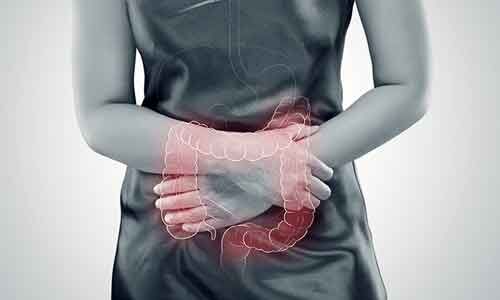- Home
- Medical news & Guidelines
- Anesthesiology
- Cardiology and CTVS
- Critical Care
- Dentistry
- Dermatology
- Diabetes and Endocrinology
- ENT
- Gastroenterology
- Medicine
- Nephrology
- Neurology
- Obstretics-Gynaecology
- Oncology
- Ophthalmology
- Orthopaedics
- Pediatrics-Neonatology
- Psychiatry
- Pulmonology
- Radiology
- Surgery
- Urology
- Laboratory Medicine
- Diet
- Nursing
- Paramedical
- Physiotherapy
- Health news
- Fact Check
- Bone Health Fact Check
- Brain Health Fact Check
- Cancer Related Fact Check
- Child Care Fact Check
- Dental and oral health fact check
- Diabetes and metabolic health fact check
- Diet and Nutrition Fact Check
- Eye and ENT Care Fact Check
- Fitness fact check
- Gut health fact check
- Heart health fact check
- Kidney health fact check
- Medical education fact check
- Men's health fact check
- Respiratory fact check
- Skin and hair care fact check
- Vaccine and Immunization fact check
- Women's health fact check
- AYUSH
- State News
- Andaman and Nicobar Islands
- Andhra Pradesh
- Arunachal Pradesh
- Assam
- Bihar
- Chandigarh
- Chattisgarh
- Dadra and Nagar Haveli
- Daman and Diu
- Delhi
- Goa
- Gujarat
- Haryana
- Himachal Pradesh
- Jammu & Kashmir
- Jharkhand
- Karnataka
- Kerala
- Ladakh
- Lakshadweep
- Madhya Pradesh
- Maharashtra
- Manipur
- Meghalaya
- Mizoram
- Nagaland
- Odisha
- Puducherry
- Punjab
- Rajasthan
- Sikkim
- Tamil Nadu
- Telangana
- Tripura
- Uttar Pradesh
- Uttrakhand
- West Bengal
- Medical Education
- Industry
Elevated serum palmitoleic acid levels may predict prognosis of crohn's disease, study finds

Japan: Palmitoleic acid is an adipose tissue-derived mono-unsaturated free fatty acid.
In a study conducted by Yuko Akazawa and the team, it was found that palmitoleic acid (PO) can be used as the indicator of the local inflammation and prognosis in Crohn's disease (CD) patients.
Inflammatory bowel disorders (IBDs), which include ulcerative colitis (UC) and CD, are chronic intestinal illnesses with unclear etiologies and varying disease extents and outcomes. The use of biomarkers in the diagnosis and treatment of IBDs is thought to be helpful. The aim of this study was to look into the relevance of PO levels in the serum of UC and CD patients. The findings of this study were published in the journal Scientifc Reports on 10th August 2021.
This retrospective investigation was carried out in compliance with the Helsinki Declaration's ethical criteria. From April 2010 to March 2011, the serum study group included 57 IBD patients (35 with CD and 22 with UC). As controls, twenty-two healthy volunteers were recruited. Prior clinical evaluation, endoscopy, and histology were used to confirm the diagnosis of UC or CD using defined criteria. Serum samples were obtained from all IBD patients and healthy participants and stored at 80 °C until use in ethylenediaminetetraacetic acid tubes. MAT was extracted during the colectomy.
Serum PO levels were found to be substantially higher in patients with CD than in healthy controls in this investigation; serum PO levels were positively linked with disease activity in patients with CD but not with BMI or elemental diet. Researchers discovered increased serum PO levels solely in CD patients when compared to control participants. The other two major free fatty acids, PA and OA, remained constant in CD patients' blood. The pilot research, which used abdominal MAT samples from a small number of patients, found that PO levels increased in the active disease location of CD when compared to patients with UC and controls.
In conclusion, the results of this study show that PO metabolism is changed in CD and that it plays a role in detecting disease activity. In CD, PO has the potential to operate as both a disease activity marker for local inflammation and a predictive factor.
Reference:
Akazawa, Y., Morisaki, T., Fukuda, H. et al. Significance of serum palmitoleic acid levels in inflammatory bowel disease. Sci Rep 11, 16260 (2021). https://doi.org/10.1038/s41598-021-95923-6
Medical Dialogues consists of a team of passionate medical/scientific writers, led by doctors and healthcare researchers. Our team efforts to bring you updated and timely news about the important happenings of the medical and healthcare sector. Our editorial team can be reached at editorial@medicaldialogues.in.
Dr Kamal Kant Kohli-MBBS, DTCD- a chest specialist with more than 30 years of practice and a flair for writing clinical articles, Dr Kamal Kant Kohli joined Medical Dialogues as a Chief Editor of Medical News. Besides writing articles, as an editor, he proofreads and verifies all the medical content published on Medical Dialogues including those coming from journals, studies,medical conferences,guidelines etc. Email: drkohli@medicaldialogues.in. Contact no. 011-43720751


